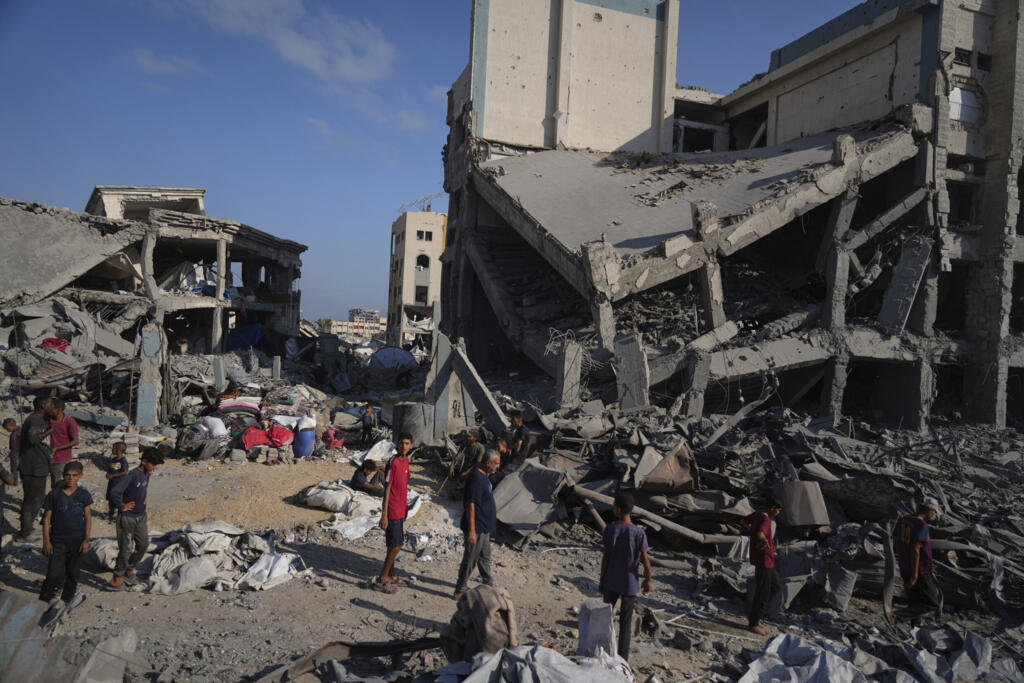
As Israel pushes forward with its military plan to occupy Gaza City, the enclave has been left without a single fully functioning hospital. The city’s largest medical facility, al-Shifa, is struggling to operate amid medicine and equipment shortages, a malnutrition crisis and continuing bombardments – a situation the United Nations has described as "medicide".
In Gaza City, where al-Shifa is located, none of the public hospitals are fully operational. While some are still offering limited services, they are overwhelmed.
Only half of hospitals in the Gaza Strip as a whole, and just over a third of its primary health care centres, are functioning – and only partially.
More than half of essential medicines are out of stock, and infections are treated without antibiotics and surgeries performed without anaesthesia.
Bed occupancy rates have soared to 240 percent at al-Shifa and 300 percent at al-Ahli hospital in the north of the enclave.
According to al-Shifa’s director, Dr Mohamad Abu Sulmeyeh, three children currently at the hospital with paralysis are at risk of dying.
In Gaza as a whole, 55,000 pregnant women are suffering from malnutrition, and heart patients have no treatment options. Gastroenteritis cases too are soaring.
Hunger, disease and no escape: Gaza aid worker’s account of life under siege
Health supplies blocked
United Nations experts have describe the targeted dismantling of Gaza’s healthcare system as "medicide" and are urging the international community to intervene to allow humanitarian aid to enter the enclave.
"The overall health situation remains catastrophic," Dr Rik Peeperkorn, the World Health Organization (WHO) representative in the Occupied Palestinian Territories, said during a press briefing.
"We must be able to deliver all essential medicines and medical equipment," he said. "We want to build up reserves and we are hearing talk of more humanitarian supplies being allowed in – but this is not yet the case, or is happening at far too slow a pace."
Peeperkorn described "cumbersome procedures” that block many essential health products from entering the enclave, and are the subject of constant negotiation with the Israeli authorities
NGOs accuse Israel of 'weaponising' aid to Gaza as France readies airdrop
Malnutrition has escalated to crisis level. As of 5 August, 148 people – many of them children – had died from its effects this year.
Nearly 12,000 children under five were identified as suffering acute malnutrition in July, the highest monthly figure yet recorded, according to the WHO. This number includes 2,562 children suffering from severe acute malnutrition, 40 of whom were hospitalised in stabilisation centres.
The war has taken a heavy toll on health workers too, with more than 1,500 Palestinian medical staff killed in Gaza since May. They go to work each day not knowing whether they will be able to return to their families in the evening.
Many others have been "abducted, detained in Israeli prisons, and even tortured" and are now "starving like the rest of the population", the UN said in its statement.

Macron warns Israel that Gaza occupation plan risks ‘war without end’
Occupation fears
This crisis is unfolding as Prime Minister Benjamin Netanyahu has signalled his intent to maintain long-term security control after the war – a position that reopens old wounds.
Two decades ago, Israel dismantled 21 Jewish settlements in Gaza and withdrew its troops, a move then-Prime Minister Ariel Sharon framed as a step towards peace.
But the unilateral withdrawal, carried out without coordination with the Palestinian Authority, strengthened Hamas politically and did not end Israel’s control over Gaza’s borders, airspace and economy.
For many Palestinians, the “disengagement” brought hope that soon evaporated. Hamas’s takeover in 2007 led to an Israeli-Egyptian blockade that choked movement and trade.
Now, after nearly two years of war, Israeli forces control more than 75 percent of Gaza and fears of direct Israeli occupation are returning.
Meanwhile, in al-Shifa’s overcrowded wards, food for patients is in short supply and ambulances face long delays navigating streets obstructed by rubble and military checkpoints.
This article was adapted from this story by RFI's French service.







